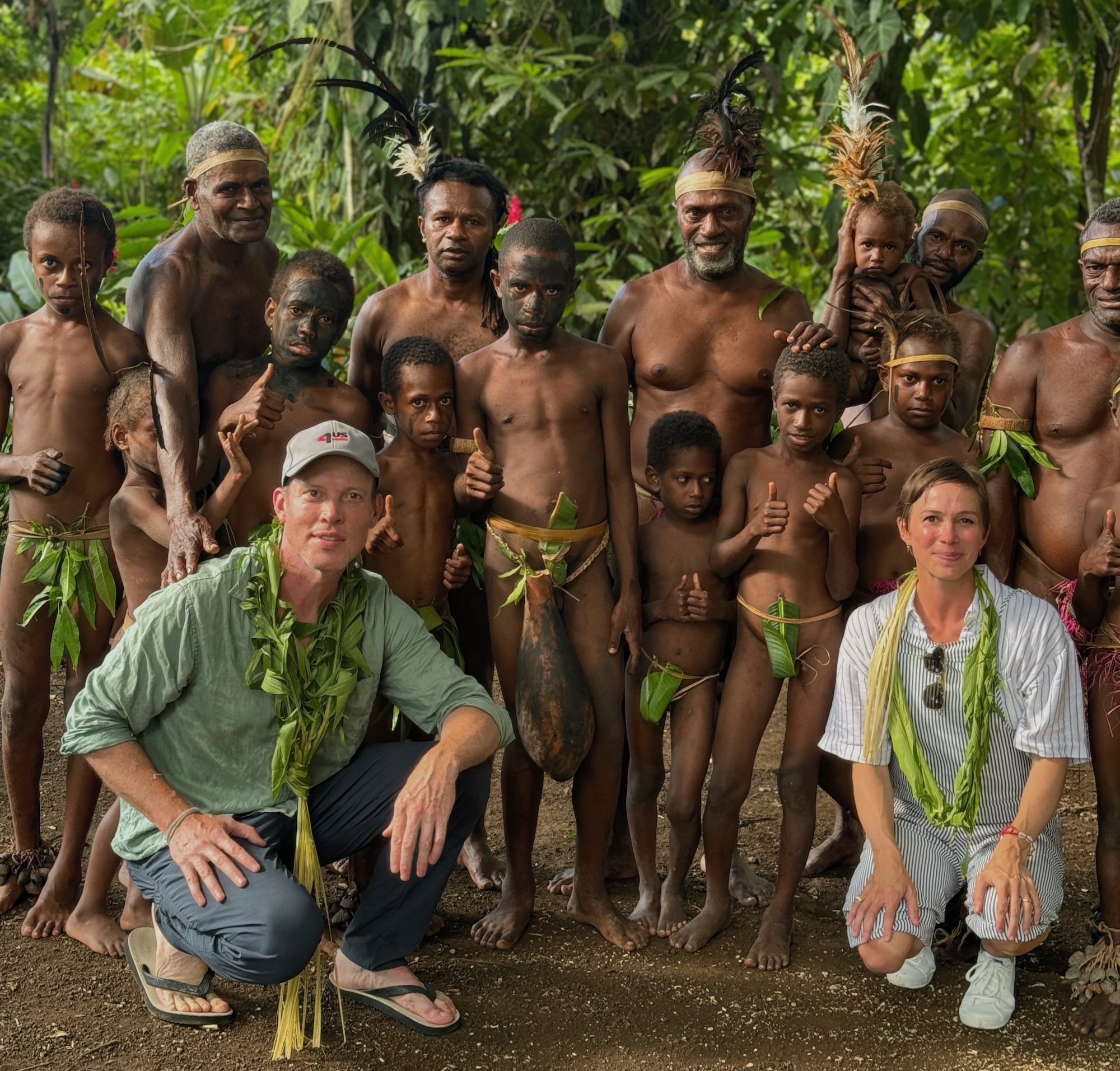This photo of “kastom” dancers was taken our second full day of traveling through Malekula Island (and its surrounding islets) in the Vanuatu archipelago.
Kastom is a pidgin word (a play on the English word “custom”) that refers to traditional art, ceremonies, religion, and magic in Melanesia. This troupe of men and boys from the Malekulan village of Amelboas was fascinating to encounter, in part because they also happen to be devout Catholics.
Indeed, traditional customs in Vanuatu are invariably syncretized with Christian beliefs, and a given tourist performance is often as much about catering to outsider fascination as it is with formal kastom ceremonies.
Which is not to say that the kastom dancers of Amelboas were faking it, since performing for tourists is a reliable way to earn hard currency while teaching kastom traditions to younger community members. To keep a cultural tradition alive, the elders told us, it must be embodied.
Due to Covid (and the more recent liquidation of Vanuatu Air flights to places like Malekula), the young boys in this photo had never performed for foreigners before — and their nervous excitement at the prospect of doing so for us was fun to witness.
A few days later, we saw an unfamiliar-looking group of young boys and their elders dutifully clearing weeds from the side of the road near Amelboas. When they spotted us, they let out a cheer, and waved at us excitedly.
At first we weren’t sure why they were so happy to see us. Then were realized that it was the same group of men and boys that had performed for us — this time wearing t-shirts and shorts instead of kastom garb.
Note: “Dispatches” are short vignettes, profiles, and mini-essays written and posted from the road, often in tandem with my Instagram account. I don’t host a “comments” section, but I’m happy to hear your thoughts via my Contact page.

